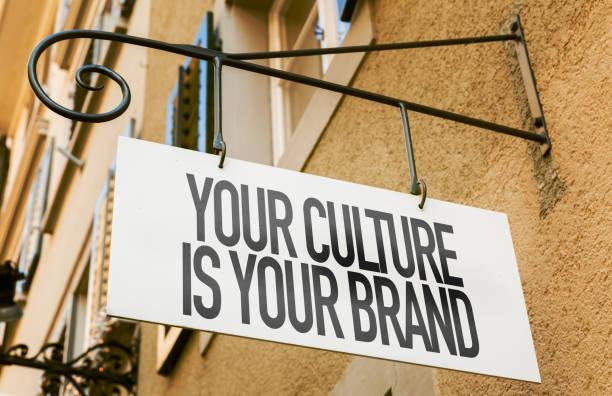YOUR CULTURE IS YOUR BRAND-What is the significance of historical events like the Renaissance or the Enlightenment in shaping European cultures today? By Hugo Keji

Historical events like the Renaissance and the Enlightenment had a profound and lasting impact on European cultures, shaping many aspects of modern thought, art, politics, and social structures.
1. The Renaissance (14th to 17th Century)
The Renaissance, meaning "rebirth," was a cultural movement that revived interest in classical antiquity, leading to major developments in art, science, philosophy, and politics. Its significance in shaping European cultures today can be seen in several areas:
-
Art and Architecture: The Renaissance gave birth to some of the greatest artistic achievements in European history. Artists like Leonardo da Vinci, Michelangelo, and Raphael revolutionized visual representation, emphasizing realism, perspective, and human emotion. This period laid the foundation for Europe's deep appreciation for art and aesthetics, visible today in the preservation of Renaissance artworks and architecture, especially in cities like Florence, Rome, and Venice.
-
Humanism: The Renaissance promoted humanism, a philosophy that emphasized the potential, dignity, and worth of the individual. This shift away from a purely religious worldview encouraged inquiry, self-expression, and intellectual development, which are still central values in modern European societies.
-
Science and Exploration: Advances during the Renaissance in scientific inquiry, led by figures like Galileo and Copernicus, laid the groundwork for the Scientific Revolution. Their emphasis on observation and experimentation continues to influence Europe's leadership in scientific innovation and research.
-
Political Thought: Thinkers like Machiavelli introduced ideas about statecraft and political power that continue to influence European political systems. His work, particularly The Prince, is still studied in modern political theory and international relations.
AfriPrime App link: FREE to download...
https://www.amazon.com/Africircle-AfriPrime/dp/B0D2M3F2JT
2. The Enlightenment (17th to 19th Century)
The Enlightenment, also called the Age of Reason, was a period in which intellectuals sought to apply reason and scientific methods to all aspects of human life, including government, society, and culture. Its effects on modern European culture include:
-
Democracy and Human Rights: Enlightenment philosophers such as John Locke, Voltaire, Jean-Jacques Rousseau, and Montesquieu advocated for individual rights, separation of powers, and the social contract. Their ideas heavily influenced the development of modern European democracies, as well as the French and American Revolutions. Today, the values of liberty, equality, and justice are embedded in European political systems and legal frameworks.
-
Secularism and Religious Tolerance: Enlightenment thinkers challenged the dominance of religious authorities and promoted secularism. This led to a gradual separation of church and state, promoting religious tolerance and the freedom of belief that is now a hallmark of European societies.
-
Education and Intellectual Curiosity: The Enlightenment emphasized the importance of education and knowledge. Institutions such as universities and libraries expanded, and ideas about public education took root. Modern Europe continues to prioritize access to education and the cultivation of intellectual curiosity, as seen in its robust education systems, research institutions, and cultural focus on lifelong learning.
-
Scientific Progress and Rationalism: The Enlightenment reinforced the scientific approach, leading to major advances in fields such as mathematics, physics, and biology. Figures like Isaac Newton and Immanuel Kant furthered the idea that human reason could explain natural phenomena. The emphasis on rationalism and evidence-based knowledge remains fundamental to modern European science and policy-making.
-
Civic Society and Social Progress: The Enlightenment fostered ideas about civic engagement and participation in governance, which have shaped the development of civil society in Europe. It also promoted discussions on issues like women's rights and the abolition of slavery, paving the way for modern movements advocating for gender equality, human rights, and social justice.
Continuing Influence on Modern European Culture
-
Cultural Heritage: The Renaissance and Enlightenment are central to Europe’s cultural heritage, with museums, galleries, and educational institutions across Europe emphasizing the achievements of these periods. This cultural pride is reflected in everything from Italy’s preservation of Renaissance architecture to France’s celebration of Enlightenment literature and philosophy.
-
Philosophical Foundations: Europe’s contemporary values of human rights, democracy, and intellectual freedom are deeply rooted in Enlightenment ideals. The belief in progress, rational thought, and individual liberty continues to influence European politics, international relations, and social policies today.
-
Artistic and Intellectual Legacy: European art, literature, and philosophy continue to draw on the legacies of both the Renaissance and Enlightenment, blending classical ideas with modern innovation. The ongoing dialogue between tradition and modernity is a defining feature of European culture.
These historical periods instilled foundational principles—such as the importance of human reason, artistic expression, and civic engagement—that still define Europe’s identity and global influence today.
AfriPrime App link: FREE to download...
- Questions and Answers
- Opinion
- Story/Motivational/Inspiring
- Technology
- Art
- Causes
- Crafts
- Dance
- Drinks
- Film/Movie
- Fitness
- Food
- Jeux
- Gardening
- Health
- Domicile
- Literature
- Music
- Networking
- Autre
- Party
- Religion
- Shopping
- Sports
- Theater
- Wellness
- News
- Culture
- War machines and policy

